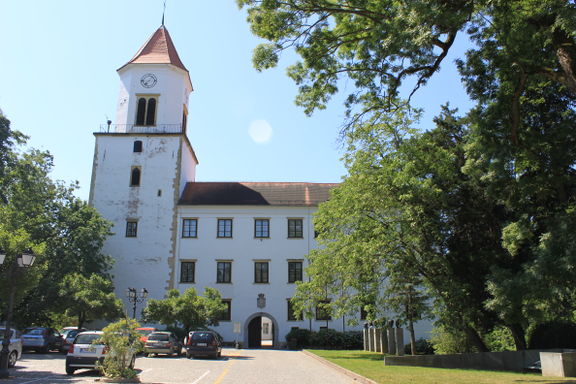Ormož Castle
History
First mentioned in 1278, Ormož Castle was built by Friderik of Ptuj. The oldest part of the castle is the tower. Various noble families owned the property down the centuries, including the Schaumbergs, the Frankopans, the Szekelys, the Pauers, and latterly the Counts of Wurmbrand.
The Classicist paintings in the castle rank amongst the best in the country.
In the recent history Ormož Castle was the seat of Ormož Municipality, which moved out in 1995, thus providing space for several cultural institutions. Ormož Castle was transformed to a centre of contemporary cultural developments in the city. Following institutions are housed in the castle: Franc Ksaver Meško Library, Ormož; part of the organizational Ormož unit of the Ptuj Regional Museum. There is a Castle Gallery of Ormož with contemporary art exhibtions. The premises were given also to Ormož brass band, and to gallery-exhibition activities. The conditions were set for organizing the first art meeting in Ormož in 1998 during Ormož summer festival.
Collections
In Ormož Castle visitors can view the former castle dining room with antique motifs, a saloon with a depiction of four continents and other motives, painted by an Austrian painter Alois Gleichenperger in 1810. There is also a wedding hall (former knight's hall) with a stucco from the beginning of the 18th century. In the second floor there is an art gallery and two historic exhibitions: Ormož, Developed from Tradition and United in Victory - Ormož between 1980 and 1990 and the War of Independence in Ormož Area.
The castle park is considered one of the most beautiful parks in Slovenia; in it grow an orange tree, a tulip tree, a ginkgo, and other exotic plants. In front of the castle is a memorial avenue devoted to the major figures of Ormož and the surrounding area, including busts of two honorary citizens of Ormož, Anton Trstenjak and Dušan Moškon.



